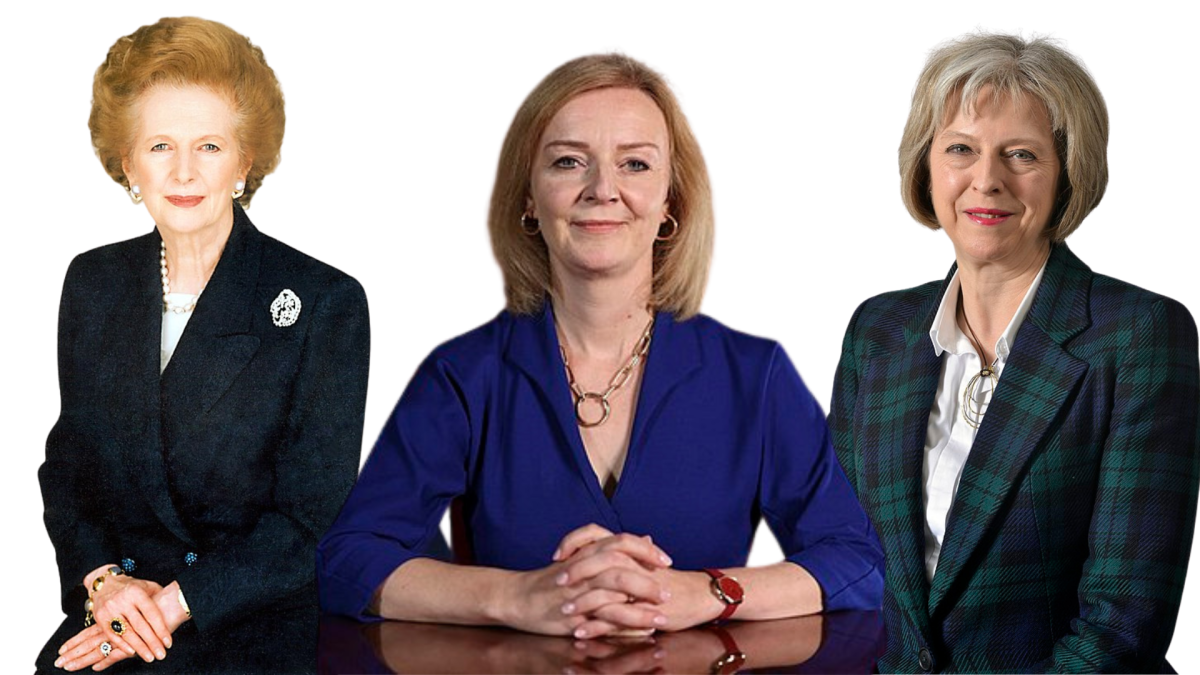The politician, the media, and her wardrobe

The accelerated downfall of Liz Truss’ career as Prime Minister brought about a multitude of satirical headlines. In the weeks after her resignation, hundreds of compilations flooded the internet placing her in a spotlight of ridicule. These ranged from her infamous ‘cheese speech’, to revelations about her bizarre obsession with Instagram, garnering her the nickname of “Instagram Queen”.
Whilst these headlines are perhaps entertaining on the surface, to me it seems that she was portrayed as an incompetent woman before an incompetent leader. No matter what end of the political spectrum you stand on, I think that there is an intersectional aspect of politics that must be acknowledged.
This gendered narrative that permeates the tabloids and Westminster governs the everyday behaviours of women. Even in this fairly progressive modern age, women still face an uphill battle to be taken seriously within the political profession. This has become ever more apparent to me as I looked at the consistency of this phenomenon throughout history.
The first elected female MP to take her seat was Nancy Astor in 1919, a Conservative MP for Plymouth. After another six decades had passed, the UK saw its first female Prime Minister, the infamous Margaret Thatcher. Since then, we have seen May and Truss take up the role of PM. Despite a female leader slowly becoming a regularity in the boys’ club that is UK politics, representation in the Commons is still lagging. Of the 650 MPs in the House of Commons, only 35% of them are women; although this is an all-time high, it still contrasts starkly with the fact that women make up over half the population.
The depiction of female politicians in the media is unfortunately deeply gendered. The media constantly reinforces female representations using sexist stereotypes, norms, and assumptions. For women in politics, their gender is always emphasised.
Whether they adhere to characteristics usually assumed to be male, in which they are perceived as cold, aggressive, and bossy, or when reverting to commonly feminine preconceptions, where they are seen as weak and overly emotional, the way they conform to gendered stereotypes is seen either as a hindrance or as advantageous to their ability to lead. Let me explain by comparing the presentation of Thatcher with May.
By virtue of her fellow Conservatives nicknaming her “Mummy May”, Theresa May was seen as possessing stereotypically feminine attributes. This was characterised by her soft-spoken nature and style choices, such as her kitten heels which were noted frequently in headlines and satirical cartoons. This contrasts greatly with Thatcher’s infamous nickname ‘The Iron Lady’, coined by a Soviet journalist in 1976. Comparing the UK’s most popular broadsheets, May’s appearance was mentioned twice as often as Thatcher’s, illustrating the extent to which her gender was used to undermine her authority.
Thatcher’s market-centred, neoliberal, and individualistic ideology that constructed much of her policies symbolised her as a stern and no-nonsense figure in the view of the public and the press. These were associated with a rejection of stereotypically feminine characteristics. Unlike May, Thatcher was often parodied as a male figure, enforcing the concept of imposter syndrome.
The media embodied this, with a headline from the Daily Express exclaiming “Maggie is the Man”, as well as her Spitting Image puppet depicting her in a suit with a cigar dangling from her mouth. These helped to create an image that women in power are a comical paradox, and that their gender should be the focal point over their political ability.
More recently, and one of the most shocking examples of this institutionalised sexism, was Glen Owens’ article for The Mail on Sunday on Shadow Chancellor Angela Rayner. The berating piece claimed that several Tory MPs had anonymously accused her of crossing and uncrossing her legs in a provocative manner. They claimed this was an attempt to distract then Prime Minister Boris Johnson from speaking, comparing her to Sharon Stone in the 1992 erotic thriller Basic Instinct.
The article received over 5000 IPSO complaints and garnered a mass response from the public, and several political officials such as Harriet Harman and Boris Johnson himself. This raised concerns that not only is the misogyny and sexism towards women in politics permeating the media, but that it begins in Westminster.
I lament in saying this, but a gendered narrative for women in politics is still an expected obstacle in the media. However, a series of reports from a collection of female MPs asserts that this misogyny is not absent in the Commons either, with more than 50 MPs suspected to face complaints of sexual misconduct reported to the parliamentary watchdog. To me, this confirms that this narrative is embedded within the institution.
The evidence I’ve provided calls for a cultural reform of not only the way that we portray and treat women in politics and the media, but that accountability within the professional setting of Parliament is required. Although it should not take this, the public address from several female MPs gives me hope that this decades-long narrative of degradation, misogyny, and sexism will no longer go unnoticed and unresolved.
I am in solidarity with Harriet Harman, the first Mother of the House, in saying “the age of male misogyny in the House of Commons is going to end … there’s going to be no hiding place.”







